Before ging further, let’s talk about the kind of sockets used these days in wall outlet, specially, when you are concerned about the heater, yes you have paid a good amount of money on the expensive heater so you shouldn’t neglect the importance of socket.
A heater requires almost 1500watts of electricity, if the wire is made of poor quality it will melt down the swicthes and buttons. You have to be very carefuly while dealing with such types of things, moreover, if you have a good socket you can use it for Air conditioners and hudimifers as well.
Let’s talk a little bit about the sockets what these sockets are actually? Well, to be very precise, the sockets used in wall outlets are typically of the type known as “receptacles” or “outlets.” These are devices that allow electrical devices to be plugged in and connected to the electrical power supply.
The most common type of receptacle found in residential and commercial buildings in North America is the “two-slot” or “two-prong” receptacle, which can accept standard, two-pronged electrical plugs. Three-slot receptacles are also available which have an additional third slot for a ground wire, which is required for most electrical appliances.
What kind of sockets are used in Wall Outlet? Check this Collection:
Check out these Sockets and plugs one by one.
Type A
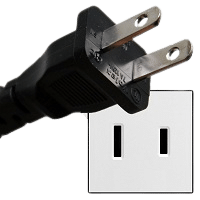
- USA, Canada, Mexico & Japan, Asia
- 2 pins
- not grounded
- 15 A
- 100 – 127 V
Type B
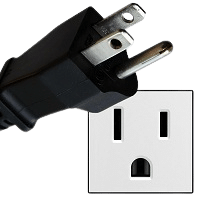
- USA, Canada & Mexico, Asia
- 3 pins
- grounded
- 15 A
- 100 – 127 V
Type C
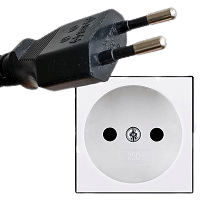
- Europe, South America & Asia
- 2 pins
- not grounded
- 2.5 A, 10 A & 16 A
- 220 – 240 V
Type D
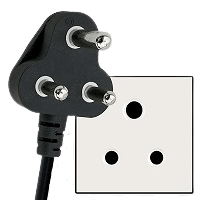
- Pak, India
- 3 pins
- grounded
- 15 A
- 220 – 240 V
- D, C, E, F
Type E
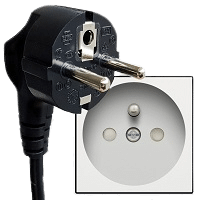
- France, Belgium, Poland, Slovakia & Czechia
- 2 pins
- grounded
- 16 A
- 220 – 240 V
- C, E & F
Type F
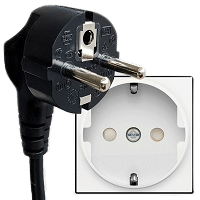
- Europe & Russia, Pak, India
- 2 pins
- grounded
- 16 A
- 220 – 240 V
- C, E & F
Type G
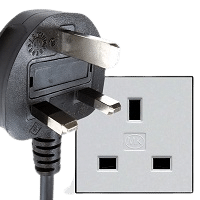
- UK, Ireland, Malta, Malaysia, Singapore & Arab
- 3 pins
- grounded
- 13 A
- 220 – 240 V
- Compatiable G
Type H
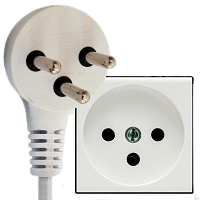
- Israel, the West Bank & the Gaza Strip
- 3 pins
- grounded
- 16 A
- 220 – 240 V
- Compatible with C, H, E & F
Type I
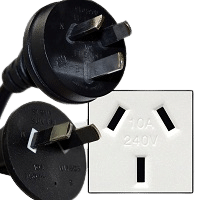
- Australia, New Zealand, China & Argentina
- 2 or 3 pins
- 2 pins: not grounded / 3 pins: grounded
- 10 A
- 220 – 240 V
- Compatible with Type-I
Type J
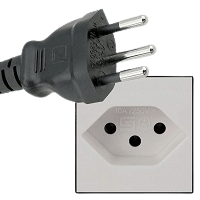
- Switzerland & Liechtenstein
- 3 pins
- grounded
- 10 A
- 220 – 240 V
- Compatiable with C & J
Type K
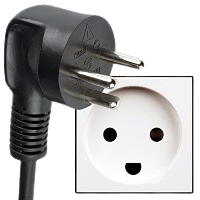
- Denmark & Greenland
- 3 pins
- grounded
- 16 A
- 220 – 240 V
- Compatiable with C & K
Type L
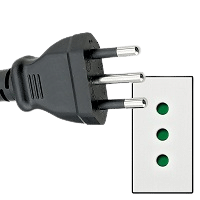
- Italy & Chile
- 3 pins
- grounded
- 10 A & 16 A
- 220 – 240 V
- 10 A socket compatible with plug types C & L (10 A version)
- 16 A socket compatible with plug type L (16 A version)
Type M
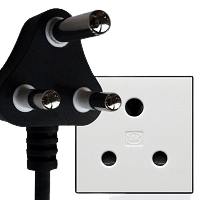
- South Africa
- 3 pins
- grounded
- 15 A
- 220 – 240 V
- Compatible with M
Type N
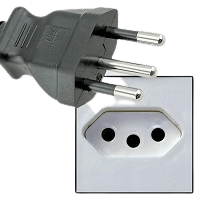
- Brazil and South Africa
- 3 pins
- grounded
- 10 A, 16 A & 20 A
- 100 – 240 V
- Compatible with C & N
Type O
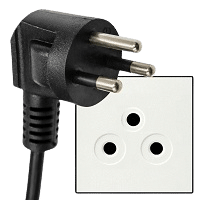
- Thailand
- 3 pins
- grounded
- 16 A
- 220 – 240 V
- Compatiable with C & O
Things You Must Know:
What is the Difference between Grounded and Non-Grounded Plug Cords?
Grounded and non-grounded outlets are different in terms of their electrical wiring and safety features. Grounded outlets have a third prong, which connects to the ground wire in the electrical system, providing an extra layer of protection by directing any excess electrical current away from the device and into the ground. This helps to prevent power surges that could potentially overload the device or cause electrical shock. On the other hand, non-grounded outlets only have two prongs and lack this added safety feature. It is important to use the appropriate type of outlet for your device, as using a non-grounded outlet with a device that requires a grounded one can be dangerous and potentially lead to accidents.
What is the best Plug and Socket for a space heater?
You should know about the power consumption, first of all.
Power Consumption:
Space heaters usually work on 1500watts of electricity while the small space heaters, fan heaters or table heaters consumes either 1000watts, 750watts and 500watts depending upon the size and usage, if you have 1500watts heater, and you are using it on 750watts (slow mode) this will consume less electricity.
Size of the Heater:
Size really matters when it comes to electricity consumption, you have to very careful when you are selecting the heater, don’t buy the expensive heaters if your room is small, For students I recommend to use a table fan rather than going for a space heater.
Type of a Heater:
Since there are several types of heaters you can use, the class and kind also matters here, if you are using a propane, stove or gas heater which is really dangerous for the health, there will be no electricity usage then, but if you go for the electric space heaters, you can go for infrared heaters, electric fireplace heaters, cermaic heaters or fan heaters, it depends upon the type then. Different types of electric heaters consumes different level of watts.
Space Heaters with suitable Plugs and Socktes:
Dreo Radiator Heater is a smart and portable heater that runs at 4 levels, this is a technique you can use for any space heater.
Formula:
Amp= Watts/Volts
Dreo Radiator Heater consumes 1500 watts at 120v
Amp= 1500/120 = 12.5 Amp
Check this Calculator at Electrical Calculator:
So you can use the respective socket and plug outlet, for this Type B, Type C, Type E, Type F, Type H, Type K, Type M, Type N and Type O, you can choose the respective one according to your own counrty.
What is the Best Socket and Plug for AC?
Air conditioners takes a lot of electricity when you use them in summer, a low quality wire and sockets can burn your room that’s why it is really important to know the exact level of electricity and volts required to run an AC.
Let’s take an example of DAIKIN 12,000 BTU:
This Air Conditioner has 20amp of electricity that means you can use Type D, Type G, Type H, Type I, Type M, Type N and Type O.

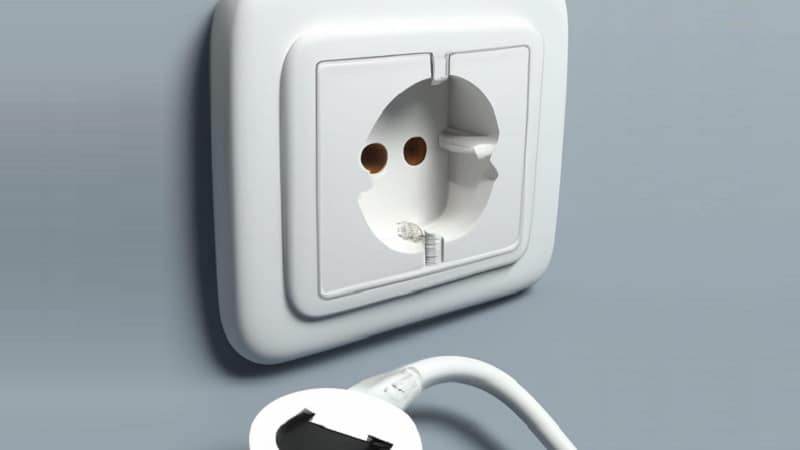
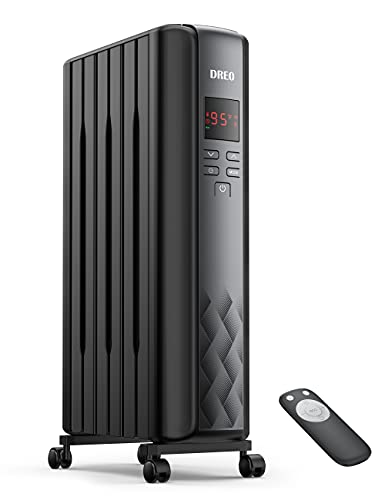

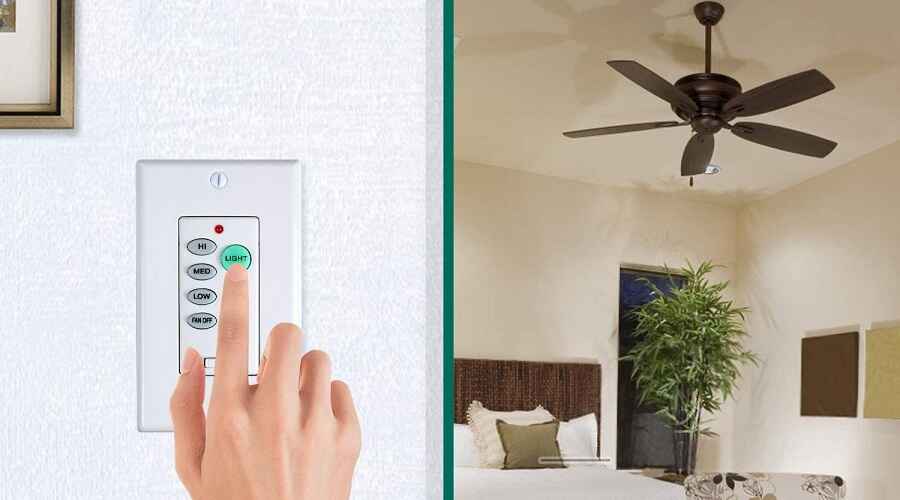
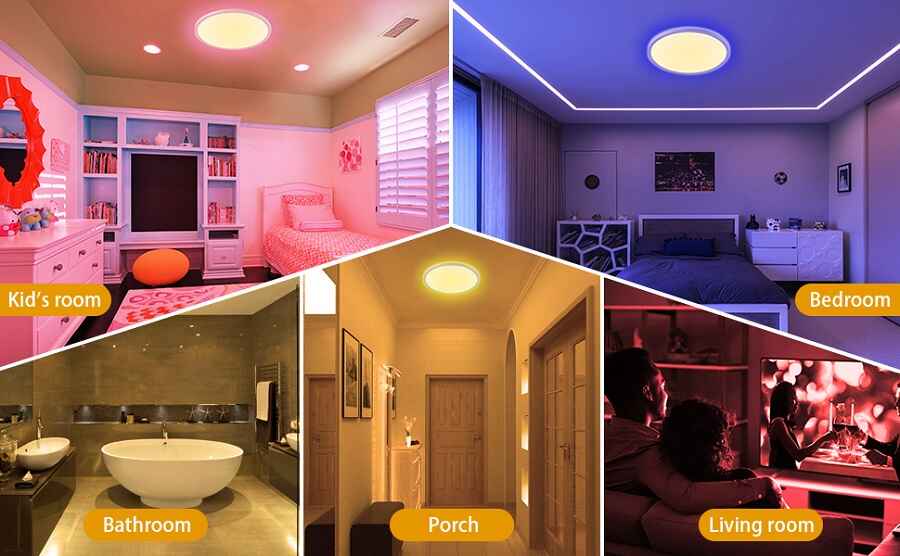
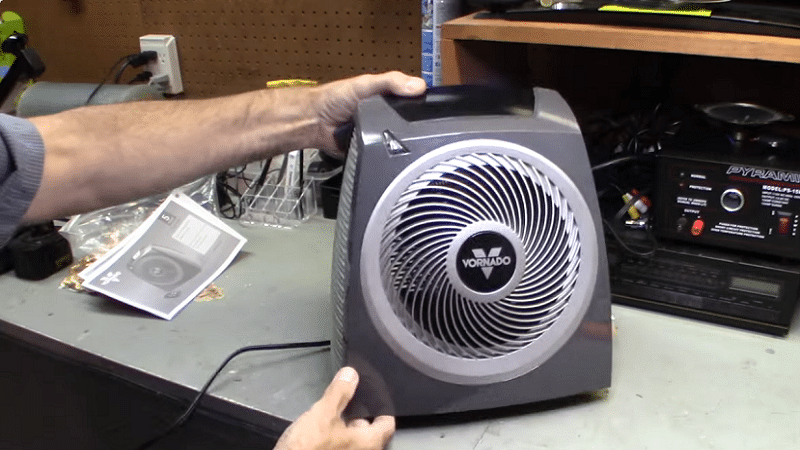
0 Comments